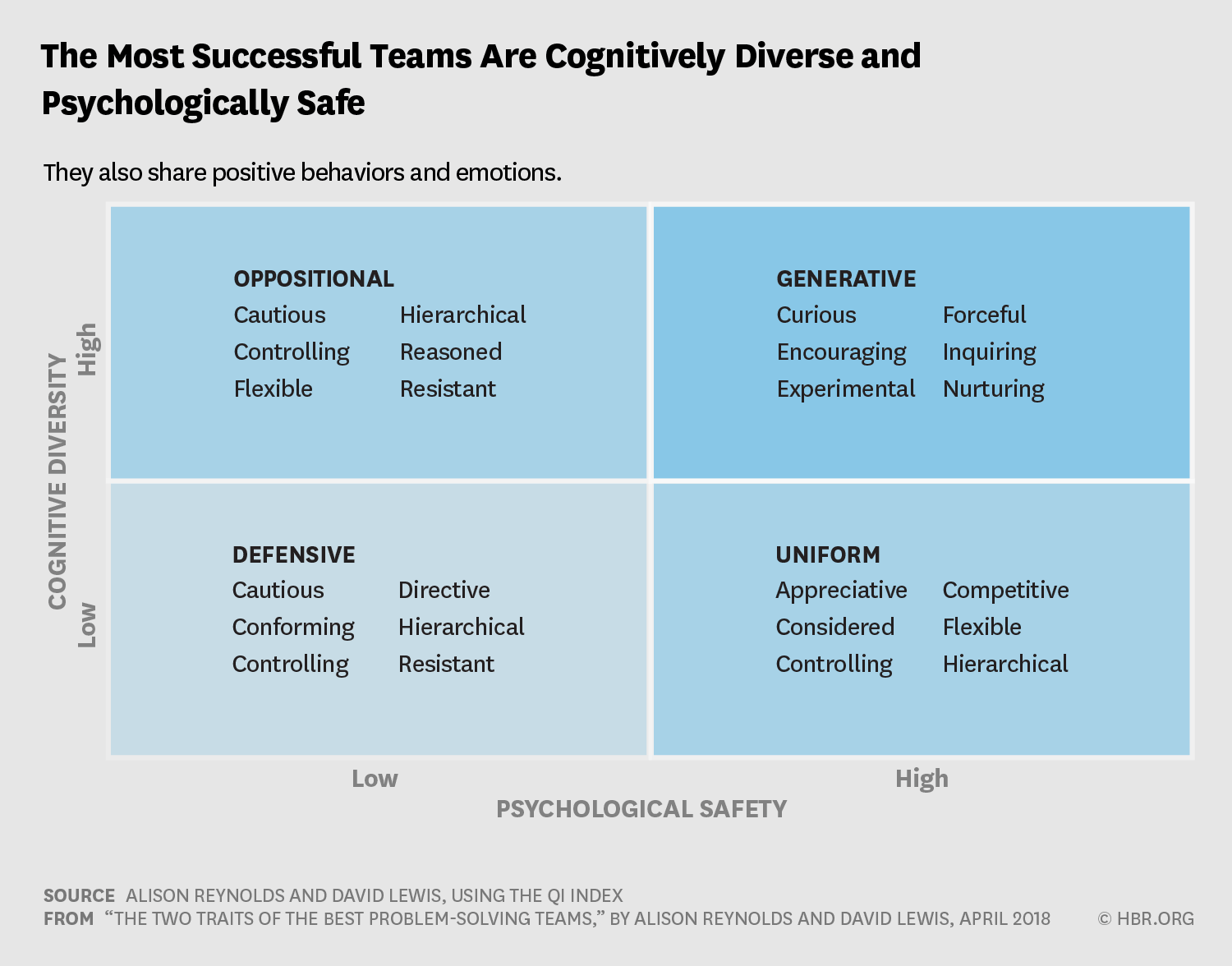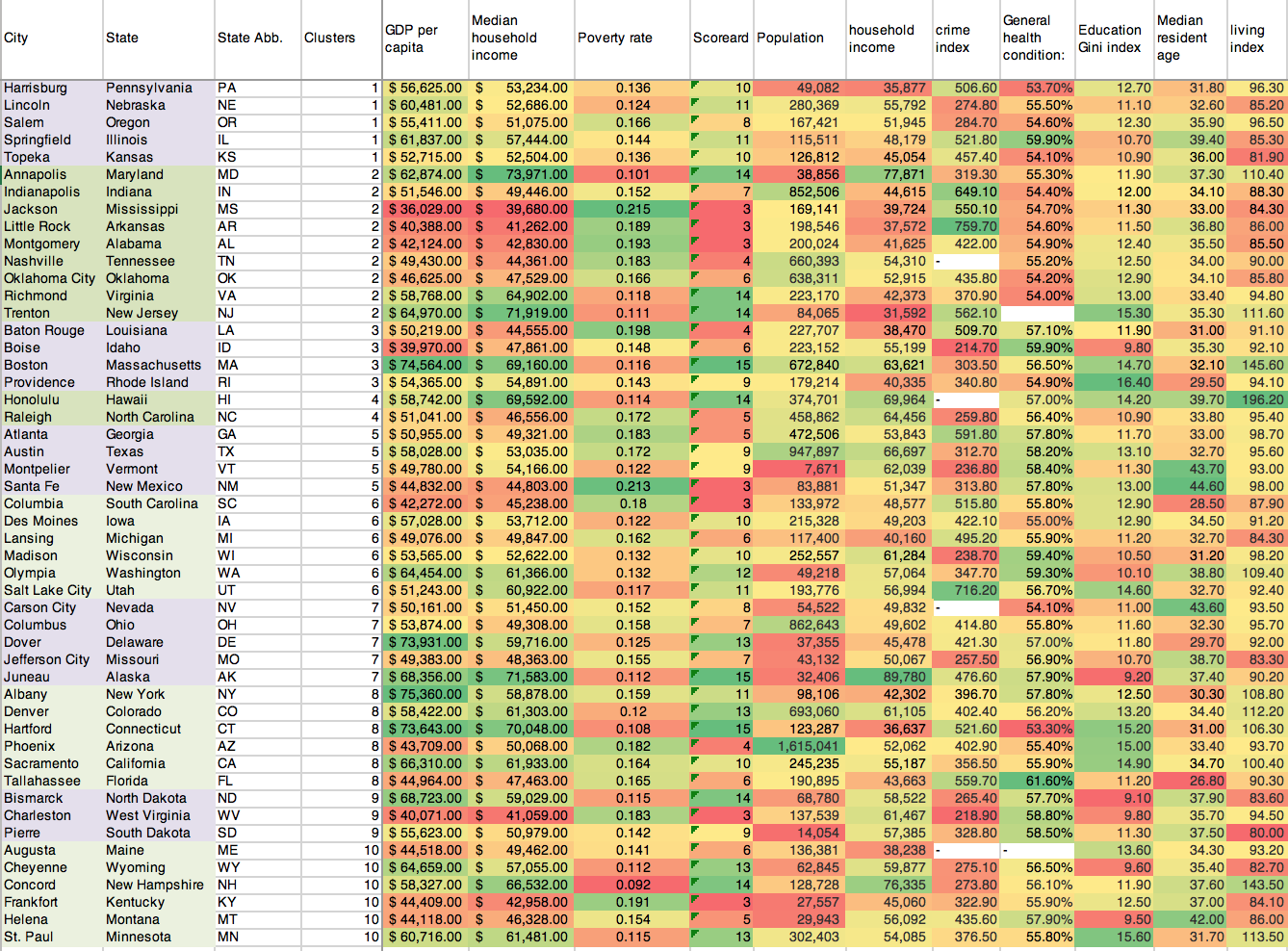Examining US cities is not something that I find to be good research but could not help myself. I am curious about these places. Capitals often have a perceived ‘vibe’ that is different than the rest of the State. In general, cities are too big, too diverse but maybe capitol cities have a feel . They do have a certain ‘vibe’ and I was curious to pressure test my software, treating capital cities like organizations. I did find some interesting patterns; Demographics and financial aspects of cities have nothing in common with their psychometric traits.
GDP, medium income, poverty rate, population, household income, crime index, general health condition, Education Gini index, median resident age and living index all have little in common with the high indexing, psychometric traits of cities.
Below are clusters or groups of like cities based on their collective personalities. I found many ways to define clusters but 10 seems to fit well. All metrics are curent to 2017 numbers. Cluster 2 is generally less affluent than others, especially Cluster 8.
Below are the personality trait clusters for each cluster of capital city. Below are the 1st tier traits and a brief description of each trait. This information along with much more was rolled up into a cluster analysis of all 50 cities.
The traits you see below are in order density. Think of it as a collective scoring marker. Cities can be diverse and diverse within each city but commonalities independent of demographics do connect. Does Salam and Lincoln have similar people, the research indicates yes.
If you are interested in the entire research file, please contact me @ [email protected]








